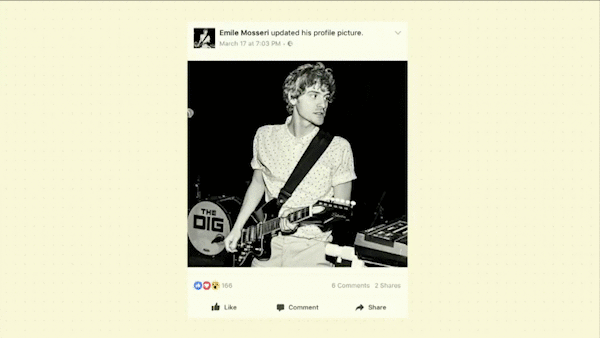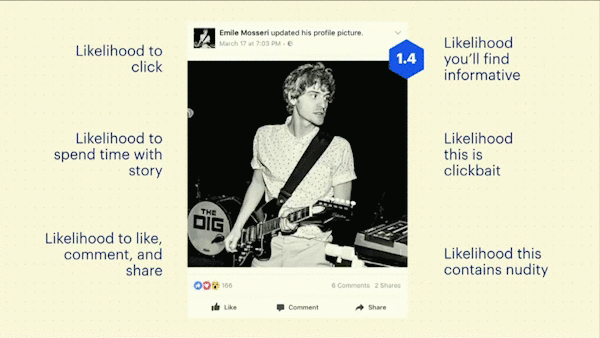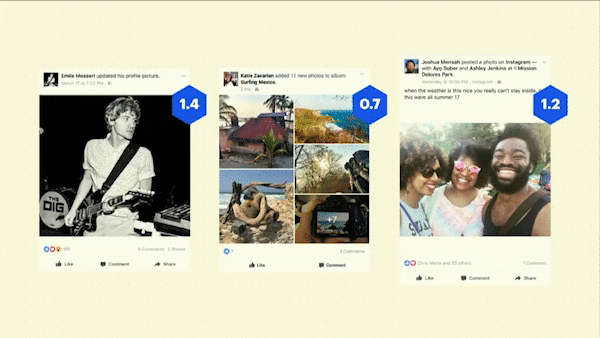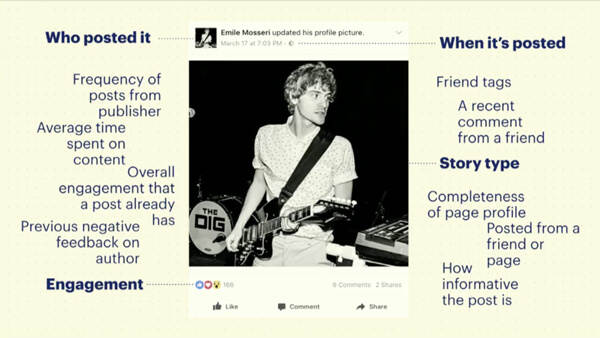Whenever you post to Facebook, you're at the mercy of the website's algorithms.
These determine who will, or will not, actually see your posts.
As you probably know already, just because you have a certain number of followers, it doesn't mean every single one of those people will see any given post.
The algorithms are proprietary, but that doesn't mean nothing is known about them — quite the contrary.
During the recent 2017 Facebook F8 Summit, Adam Mosseri, Facebook's VP of News Feed, broke down how the algorithm ranks content.
It turns out that it works in a series of steps, each of which is something you can optimize for, at least to an extent.
This information from the F8 Summit can be leveraged to help you maximize the likelihood that a significant number of people will see your posts.
Social Media Examiner breaks it down step by step.
How Facebook’s News Feed Algorithm Ranks Your Content
Inventory
When you first open your news feed, Facebook’s algorithm takes an inventory by looking at all of the stories posted by your friends and the pages you follow (in the same way Adam checked to see what was on the menu).
Signals
Facebook then considers all available data and tries to make an informed decision about how interested you may be in a certain story. Facebook calls this data “Signals”. There are hundreds of thousands of them that Facebook considers to rank your content, such as who posted a story, what phone a user is on, what time it is right now, how much bandwidth you have, and so on. (More on these signals below.)
Predictions
Facebook then uses these signals to help make predictions and calculate the probability of certain outcomes; for example, how likely you are to comment on a story, share a story, spend time reading a story, and so forth.
[image source: Social Media Examiner]
Facebook looks at a variety of signals to rank content and determine what to show in the news feed.
Score
After making these predictions and calculating the probabilities, Facebook consolidates the information to calculate a “relevance score,” a number that represents how interested Facebook thinks you may be in a certain story. It’s worth noting that Adam made a point of stressing that Facebook doesn’t really know how interested you are in a certain story; it’s an educated guess at best.
[image source: Social Media Examiner]
Facebook tries to predict what content users will want to see in the news feed.
This ranking process occurs each and every time you open Facebook, and ultimately determines what your feed looks like.
[image source: Social Media Examiner]
Facebook calculates a relevance score based on a variety of factors, which ultimately determines what users see in the Facebook news feed.
The Signals Facebook Considers When Ranking Your Content
Some of the specific signals that will affect your ranking on Facebook include:
Who posted a story
- Frequency of posts from that person / publisher
- Previous negative feedback on an author
Engagement
- Average time spent on content
- Overall engagement a post already has
[image source: Social Media Examiner]
These signals affect how your content is ranked in the Facebook news feed.
When the story was posted
- Friend tags
- A recent comment from a friend
Story type
- Completeness of page profile
- Posted from a friend or page
- How informative the post is
To read more about Facebook's algorithms, and how you can optimize for them, check out the full post on Social Media Examiner.
CHALLENGE Yourself to Profit!
Free Download: Build Your Profit-Generating Online Business With This Free Blueprint
Sign Up, follow the easy steps and You'll get the tactics, strategies & techniques needed to create your online profit stream. It's free!
Free Download:
“Download The 21 Days To Profit Blueprint 100% FREE… and Discover The Single Most Profitable Niche Market Selection Technique”All new plug and play blueprint builds
profitable Internet businesses in record time… | |
|







